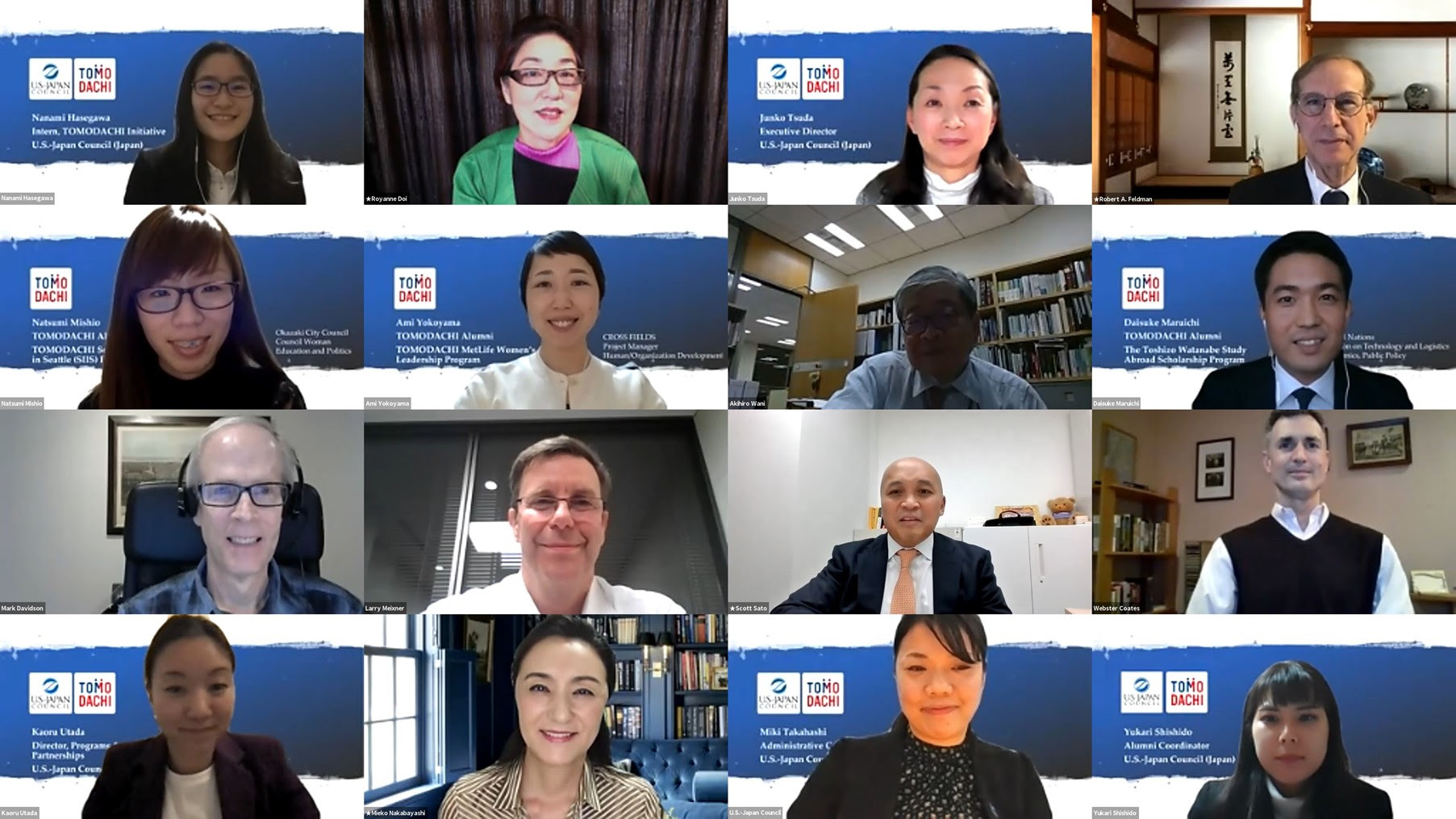
On February 9, the 22nd U.S.-Japan Council Business Advisory Board (BAB) Meeting was held online, welcoming Dr. Robert Alan Feldman (Professor of Tokyo University of Science and Senior Advisor to Morgan Stanley MUFG Securities Co., Ltd.) and Dr. Mieko Nakabayashi (Professor at the School of Social Sciences of Waseda University and Distinguished Fellow of the Maureen and Mike Mansfield Foundation) to exchange insights on the new Biden administration. Over 50 industry leaders from diverse fields gathered to listen to their fireside chat, titled “Political and Economic Outlook Under the New Biden Administration.”
Emceed by USJC Board Member Scott Sato, the meeting began with opening remarks from Masaaki Tanaka, Chairman of the Business Advisory Board and Vice Chair of the USJC Board of Councilors. Representative Director of the USJC (Japan) Board of Directors Royanne Doi gave updates on USJC activities, including the 2020 Signature Series and other programs.
The discussion began as Dr. Feldman and Dr. Nakabayashi shared their thoughts on Joe Biden’s Inauguration Day and his simple yet impactful speech in which they saw signs for hope over the next four years. They then explained how they see the new Cabinet as very diverse and professional and the recent Presidential orders as necessary to tackle the issues the Biden administration has inherited. Dr. Nakabayashi stressed how important unity within each party and across the nation is for the United States to maintain its strong international presence and also shared her expectations for the Biden administration to show the world how democracy prevails. Assessing the huge deficits caused by the pandemic and the issues of new technology that will accelerate job losses in the coming decade, Dr. Feldman described the urgency for the United States and Japan to start working on a new human capital management system as soon as COVID is under control.

During the Q&A and networking session following the talk, the audience, including TOMODACHI alumni, were eager to ask questions. They covered various ideas such as basic income, the Federal Reserve’s monetary policy, the $1.9 trillion COVID-19 relief package and the two-party structure in the United States. The meeting concluded with a networking session in which the speakers and the audience freely exchanged their views on the subject.